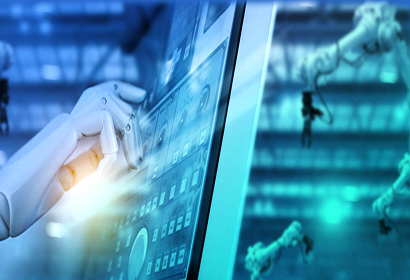Manufacturing Intelligent Solutions In Industry 4.0 Era
Meta Description: In fact, in the industry 4.0 era, manufacturing may be the most suitable industry for automation upgrades. But remember to find suitable Manufacturing Intelligent Solutions. If you want to know more, check out this blog.

The Industry 4.0 Era Coming And The Industries Changing:
What changes and requirements has the advent of Industry 4.0 brought to manufacturing production?
The key concept behind Industry 4.0 is the idea of integrating people, processes and machines over an information network so that they can cooperate intelligently without human intervention. By combining automation with artificial intelligence (AI), machine learning and other advanced technologies, manufacturers can use data collected from sensors embedded in their products to predict failure modes before they happen — potentially saving millions of dollars in warranty costs each year while providing more reliable products for consumers.
The Age of Intelligent Production has begun. The fourth industrial era is characterized by a radical change in production and logistics processes, which has led to a significant increase in productivity and efficiency. According to experts, this is due to the fact that Industry 4.0 is based on a new approach: from the simple modularity of individual components (for example, mechanical parts) to more complex modularity — in this case, it is based on information technologies and automation systems that provide not only quality control but also process control as well as management functions over entire production cycles.
What changes and requirements has the advent of Industry 4.0 brought to manufacturing production? Let's take a look at some of them:
1. Automation:
Automation is now a necessity rather than an option in many industries. The rise of robotics, AI, autonomous vehicles and other smart machinery has allowed for more sophisticated automation than ever before.
2. Big Data Analytics:
The use of big data analytics allows companies to make better decisions about their products and what customers want from them. This leads to better customer satisfaction and higher profits for the business.
3. Cloud Computing:
Cloud computing has made it easier for small businesses without much capital or resources to compete with larger companies that have been able to afford this technology previously. By using cloud services like Microsoft Azure or Amazon Web Services, small businesses can develop applications that were previously only available to large corporations with huge budgets for IT infrastructure maintenance costs like data centres and server farms.
Process Automation Is The Future Of Manufacturing Development:
Process automation is the future of manufacturing. The development of economic globalization is becoming mature, and the challenges faced by the manufacturing industry are also becoming more severe. Process automation can usher in a better era for manufacturing because it can improve product quality, reduce production costs and improve efficiency.
Manufacturing has made tremendous progress over time. In fact, modern manufacturing has been greatly influenced by technology such as process automation, artificial intelligence and cloud computing. These technologies have made it possible for manufacturers to develop more intelligent production lines with better efficiency and productivity.
Intelligent Solutions Applied In The New Manufacturing Industry:
In fact, because the manufacturing industry needs to improve its competitiveness in the wave of new technology, it needs to use new technology as a tool. However, the production speed brought by the new technology is several times or even dozens of times before, which will be a big challenge for employees. This is when RPA comes in handy. As a quality digital worker, it can formulate the smartest solutions for manufacturing. In this way, most of the problems can be solved easily.
RPA can be used to automate complex processes such as data entry, data processing, form filling and document tracking etc., which require high-speed accuracy and consistency levels. RPA tools can be integrated into existing systems such as SAP or Oracle so that they can work seamlessly along with other processes within the system without any interruption while performing their assigned tasks at high speeds with zero errors!
1. Automating repetitive tasks:
In the manufacturing industry, systems are complicated, and there are many repetitive operations between multiple systems. For example, the company needs to update its website with new products every day. If a company has 10 websites, it needs to update all of them manually. This is a very time-consuming process. However, Robots have been doing repetitive work for decades now and they're very good at it. They're also getting smarter all the time, so their ability to do more complex tasks is growing rapidly too.
Some RPA, such as Cyclone's RPA robot, can automatically perform repetitive cross-system operations 7*24, instead of manual operations, and comprehensively improve the execution efficiency of BOM change processes and other complex processes.
2. Improving quality control:
Robots are much better than humans at checking things over and making sure they're right the first time every time - no mistakes! It allows companies to automate repetitive tasks through smart technologies such as the Industrial Internet of Things (IIoT), which provides real-time insight into manufacturing processes by connecting machines, sensors and humans into one intelligent system that improves overall efficiency and reduces costs by eliminating human error from the process. So using robots for quality control can reduce errors and improve efficiency massively (which in turn reduces costs).
3. Monitoring production processes:
By using robots as 'eyes' on production lines, companies can monitor what's going on at all times and spot any problems before they cause serious damage or delay production (again saving money).
4. Offering support services:
In some cases, robots can even offer assistance to workers by providing them with information on the production line. For example, if an error occurs in a specific area of the manufacturing process, the robot will inform workers so they can solve it immediately. This will not only save time but also reduce errors in production and improve productivity.
5. Data Integration:
RPA focus on data integration as an important step when integrating information from multiple sources into a single platform (e.g., ERP, MES, PLM), creating a unified view of production processes and providing real-time visibility into the status of each work station or machine in the entire production process chain. This helps manufacturers reduce errors, improve efficiency, and reduce costs through better management of their supply chains, product quality control and preventive maintenance programs.
Conclusion:
In the age of Industry 4.0, it is never too early to use automation. For manufacturing, the earlier you use process automation, the greater the benefits.
So we recommend Cyclone as your partner. You will get quality product service at an affordable price and be able to successfully automate your factory. Now Cyclone offers the opportunity to receive RPA robots for free, come and try it!





